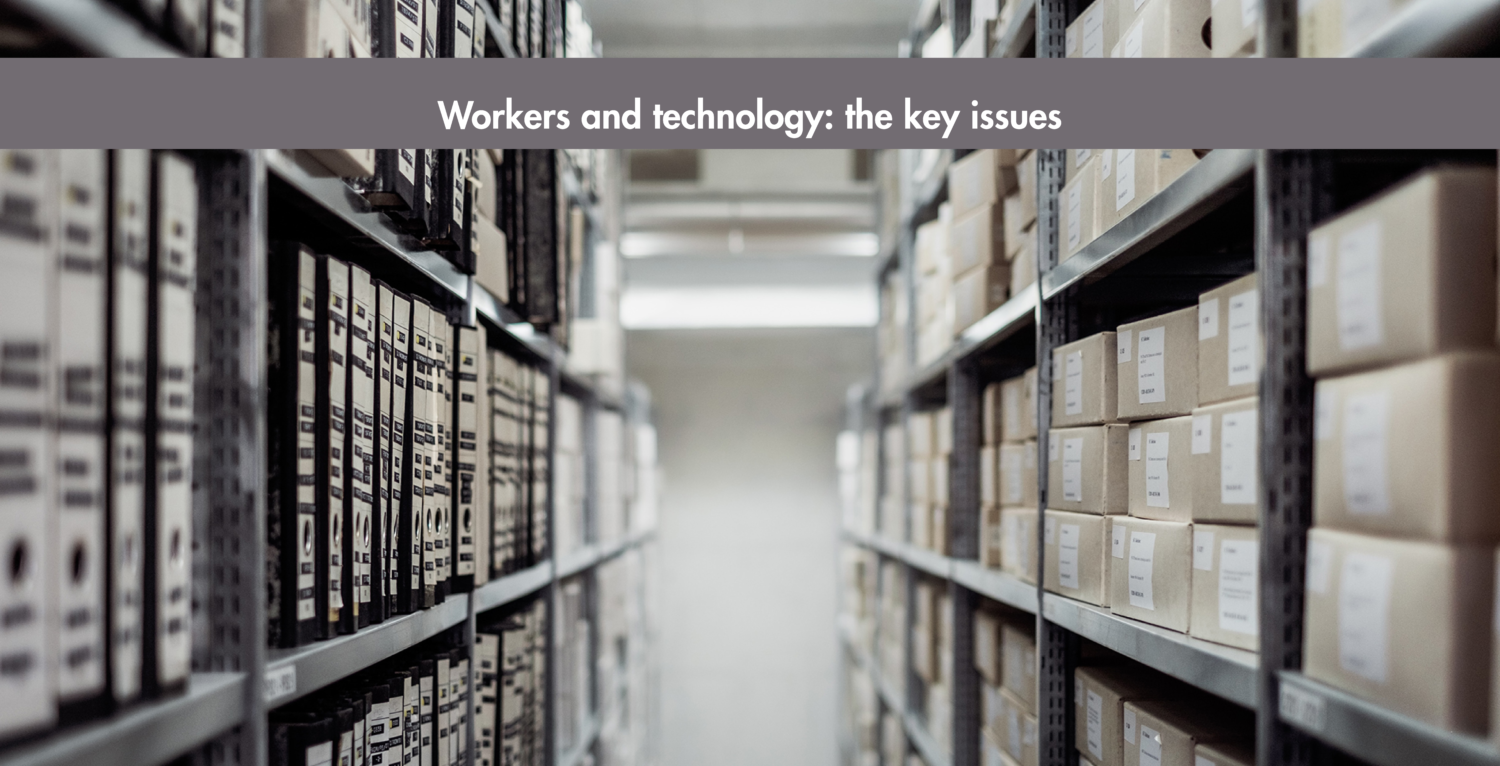Thinking the Unthinkable about the Future of Work
Artificial intelligence and robotics will impact work in different ways and each will require a different strategic policy response, writes Norman Pickavance.
You no longer need to be ‘Mystic Meg’ to predict the future impact of artificial intelligence and robotics on work. In some ways the future is already happening. Given that, what may be most important now is to understand the way these major trends are going to impact us in very different ways. There will of course never come neatly boxed, but a structure is helpful in ordering our thought. I see three trends happening at once. The first trend is ‘Work Augmentation’, the second ‘Work Intensification’ and the third ‘Work Eradication’. Each trend will require very different strategic policy responses. So, let us consider each in turn:
Work Augmentation. It’s the place where ‘AI’ teams up with people to make life better. We are hearing lots about this idea in health care, where in 2018, Pranav Rajpurkar and colleagues at Stanford University, found that medical diagnosis can be enhanced by ‘deep learning models’ which detect clinically important abnormalities such as edema, fibrosis, and pneumonia in chest radiography. These are the joyous uplands that the tech industry like to talk about, they make us even better at what we do, and such progress is to be welcomed.
The second area I have called Work Intensification, where AI takes over the most mundane elements of our work leaving only the complex and often highly interpersonal to be performed by humans. At first this sounds promising. Take out the dull and leave the interesting stuff to us. But the way this plays out in practice may result in unintended and harsher consequences. We can see this in the call centre industry, where bots can fake being human to handle our everyday queries at less cost to business than employing people. But wait, when it comes to dealing with irate customers? For that, it appears that we still need a human being! Imagine then if work is filtered in this way, and all that we humans get to deal with are the most complex and toughest challenges. Doing this kind of ‘thing’ all day would send anyone home with a stress headache and a foul mood. Do it every day for a year we see a high risk of burnout rising. Talk about dark satanic mills, in this brave new world it’s no longer going to be physical labour that’s doing us in, it’s emotional labour that will scramble our brains and risk us screaming for our sanity.
The third area is what I have simply called Work Eradication. The fact is certain industrial sectors will witness the eradication of almost all human work. We need to be more honest and more precise about this, because the scale, speed and impact will make the upheaval we are witnessing on our high streets look like a tea party. Let’s pick just one area; distribution centres. We employ one million people in these giant sheds across the UK. Yet the future of such big boxes is already taking shape in Japan, where in 2018 Uniqlo the clothing retailer, replaced 90% of people with robots at a distribution hub just outside Tokyo. Amazon, another big fan of robotic warehouses has already given up on the idea of creating work environments where humans and robots could work together, apparently, it’s not healthy for the robots, and so they are already building predominantly robot only spaces in the UK. The impact of all this will be felt acutely. Warehouses have tended to cluster in places where the scars of the first wave of de-industrialisation have yet to heal. By way of example, 11% of all UK distribution jobs are in Yorkshire, with over 40% concentrated within a 30-mile radius. If, as is predicted, the majority of these human jobs disappear, then around 50,000 peoples work could be lost. That’s roughly equivalent to the population of a town the size of Wakefield.
So, what are the right policy solutions for each of these challenges?
Starting on a positive footing.
Work augmentation could mean opportunity, and with investment an area where the UK leads the world, particularly in health care. Technology isn’t simply going to add or subtract from our existing patterns of organising. It may end up disrupting the way we think about things completely. However, our national education system isn’t ready to equip everyone for the fourth industrial revolution. Not just in digital skills, but in the things that will prepare us for a life that will not follow the patterns of the past. We must think of it in the same bold way that led our forebears to ‘invent’ red brick universities, equipping Britain to lead in the first industrial era. But we must also think more deeply about the kind of society we are shaping.
Work Intensification presents quite a different challenge but requires equally radical thinking. First, we must come to see the creation of work environments which promote human flourishing as a central element in our National Health Strategy. As work is intensified because of AI, it requires that we urgently undertake research to assesses correlations between different types of technological work-based stressors and heightened alienation, anxiety and depression. Those organisations which design these stressors out or provide support tools to help mitigate their effects should be rewarded, those that don’t could make more of a contribution to the cost of picking up the pieces. This could be as simple as seeing mental health support at work, treated as a positive investment whereas it’s currently seen as a taxable benefit.
Finally, we turn to Work Eradication. As we have seen, technology is learning how to replace repetitive human tasks at quite a rate. What can we do? First let’s level the playing field, even-up the chances for the humans in this power struggle. Right now, we tax industries that employ lots of humans more than we do those that don’t. It means that it is more economic to have a self-scan check-out than Sammy on the till. That’s not progress, that’s madness. Don’t we need to introduce some form of robot tax, which recognises robots don’t contribute to the paying of pensions, our health service or the roads we drive on? This, however bold it sounds, is only a tactical response, the robots aren’t going away. So, we must be more radical. If not, then left behind towns, will become left for dead communities.
We must collectively develop Just Economic Transition Strategies for those places that we know are going to feel the full force of the fourth industrial revolution. As we have mentioned, places like Wakefield, and other distribution hubs need investment help now, to figure out what their future is going to look like after the robots come. Time to nurture small scale entrepreneurs, time to rediscover craft making and creative arts, time to redirect anchor institutions expenditure into local suppliers and time to reconfigure power generation and the wider economy to green supply. Alongside this we need to gear up universities in the regions to be platforms for new skills, capabilities and innovation. It should come as no surprise that Amazon’s robot technology was developed near Massachusetts Institute of Technology, and that Jack Ma founder of the Chinese giant Alibaba ensures his robots are ‘Made in China’. Whilst the British technology distribution champion Ocado has worked on world beating radio communications technology in Cambridge, the software for its OSP, Ocado Smart Platform, is being developed in Sofia and not Sheffield, one of the UK’s centres for robot technology development!
We need to join the dots and start thinking the unthinkable, because the revolution is already here.

